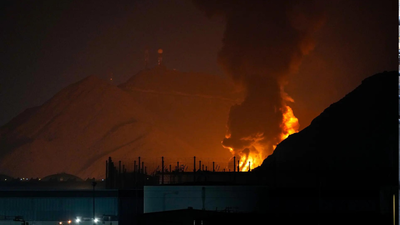Google’s ex-CEO Eric Schmidt says America is ill-equipped to address AI’s ‘biggest challenge’

Former Google CEO Eric Schmidt warns that the United States faces a critical energy shortage that could derail the artificial intelligence revolution, calling electricity, not semiconductors or funding, the primary constraint limiting AI development.“AI’s natural limit is electricity, not chips,” Schmidt said in a LinkedIn post Thursday, highlighting the infrastructure crisis facing Silicon Valley’s race toward superintelligence.
US power grid faces 92 Gigawatt shortfall for AI revolution
The energy demands are staggering. Schmidt noted that “the US is currently expected to need another 92 gigawatts of power to support the AI revolution.” To put this in perspective, he explained that “one gigawatt is roughly the equivalent of one nuclear power station,” yet “there are essentially none of these facilities being built, and in the last 30 years, only two have been constructed.”This energy crunch comes as tech giants pour billions into achieving superintelligence, AI that “greatly exceeds the cognitive performance of humans in virtually all domains of interest,” according to Oxford researcher Nick Bostrom’s definition. Companies like Meta and OpenAI are aggressively competing for AI talent to reach this milestone first.
Tech giants scramble to secure power sources for AI operations
Major corporations are already taking desperate measures. Microsoft struck a 20-year agreement with Constellation Energy to restart Pennsylvania’s Three Mile Island nuclear plant, which closed in 2019, targeting a 2028 relaunch. The company’s AI operations have already driven a 34% increase in water usage, consuming 1.7 billion gallons between 2021 and 2022.OpenAI CEO Sam Altman has personally invested in nuclear fusion startup Helion, acknowledging that an energy breakthrough “is essential for AI’s future.” Meanwhile, Microsoft and AMD have urged senators to fast-track permits to prevent grid overload from AI’s massive energy demands.
Superintelligence timeline accelerates despite infrastructure challenges
Schmidt believes specialized AI systems will transform every sector within five years. “It is reasonable to predict that we are going to have specialized AI savants in every field within five years,” he wrote, describing superintelligence as “intelligence beyond the sum of all humans.”However, critics like Greenpeace warn that current AI energy consumption could derail climate goals. Researchers project global AI workloads may consume 4.2 to 6.6 billion cubic meters of water by 2027, enough to supply Canada’s entire population for over a year.“We don’t know what AI will deliver, and we certainly don’t know what superintelligence will bring, but we know that it is coming fast,” Schmidt cautioned. “We need to plan ahead to ensure we have the energy needed.”





